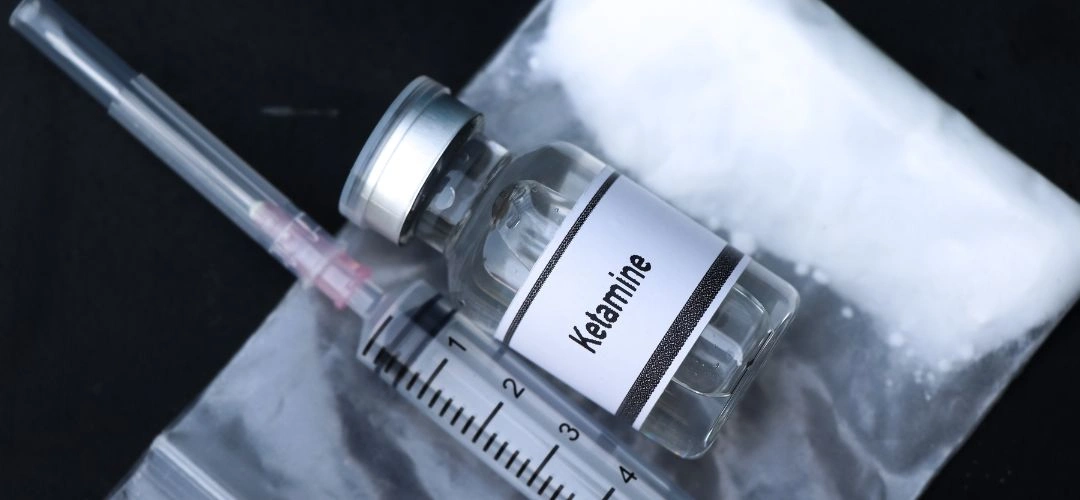Ketamine Addiction Rehab
Everything You Need to Know About Ketamine Addiction Rehab
Are you or a loved one struggling with ketamine abuse? We are here to tell you that you are not alone and that there are several ketamine addiction treatment options available for you. But what is ketamine, and how does it lead to ketamine abuse? It is a common drug abuse issue facing the United States, including fentanyl and heroin.
And while only 0.7% of the American population was using ketamine as of 2024, the impact it has on their personal lives and the community is significant. It is a dissociative anesthetic that leads to hallucinogenic effects on the mind. According to substance abuse research by the Drug Enforcement Agency (DEA), ketamine leads to hallucinations. It over-stimulates the brain, which leads to feelings of euphoria – the “feel good” state.
Not only that, it has highly addictive properties because it interferes with your brain’s natural reward system. Hence, it is also comparable to other hallucinogens like LSD, MDMA, and psilocybin, which are commonly abused drugs around the world – i.e., because of similar symptoms.
To learn more, keep reading this article. We will discuss the difference between ketamine “use” and “abuse,” along with the negative impacts of the latter. We’ll also discuss the types of chronic ketamine addiction treatment options. However, if you or someone you love is struggling with chronic ketamine use, don’t wait – get in touch with South Shore Recovery to get immediate support.
What is Ketamine and How Does it Affect the Body?
Ketamine is a party drug (i.e., a recreational drug abused in the party scene) that goes by several street names. Some people call it “Kit Kat”, while others call it “Vitamin K” and “Special K”. In fact, some people call it a “k-hole experience” after consuming ketamine.
It is a hallucinogen, much similar to LSD and MDMA, which are banned and highly questioned in the US, respectively. It leads to dissociative effects like hallucinations, stress reduction, and relaxation. And, the most common ways substance abusers consume ketamine is either in the clear liquid form or powdered form.
Many users report the intoxicating effects of ketamine (and even other opioids) as “out-of-body experiences.” This drug interferes with your brain’s reward system and triggers the release of “feel good” hormones.
As a result, you feel an intense wave of pleasure and euphoria, which also makes the act of ketamine abuse addictive (and increases your dependence simultaneously). However, ketamine lasts longer than LSD, heroin, and other opioids – sometimes just 5 to 15 minutes.
What Happens As The Level of Dosage Changes?
At lower doses, the psychological and physical effects can be less intense – but still lead to negative effects on overall health and personal lives. For instance, substance users show signs of slurred speech and feelings of dissociation.
On the other hand, higher doses can lead to more intense effects. For instance, people report memory loss and a trance-like state where they feel “paralyzed.” It is where their coordination and cognitive skills (including motor skills) are less effective.
It is important to mention that impaired motor function and memory loss incidents due to the use of ketamine also put people at a high risk of sexual assault. Furthermore, larger doses have the risk of causing respiratory depression and long-term mental health effects, like treatment-resistant depression (another name for “major depressive disorders”).
How Does Ketamine Drug Addiction Start?
How does it start? Knowing this can help you not only prevent relapse but also stop the addiction from setting roots in the first place. It begins when a person starts misusing the drug. But how do you know if someone is misusing it?
The National Institute of Health study, surprisingly, indicates that ketamine is useful for treating mental health problems. However, it is the misuse and unchecked consumption that leads to treatment for ketamine abuse to prevent long-term negative health effects.
It wasn’t a prescription or medically supervised dosage, but rather the user was consuming it for its intoxicating effects. The need to “feel good” – i.e., the euphoric state – pushes people to consume ketamine and other substances with the same psychological effects.
However, the more an individual consumes the drug, the higher their tolerance gets. The negative psychological aspects of this include a growing reliance on the drug to stay active and functional.
Moreover, it takes a higher quantity to achieve the desired effect every time. Hence, financial troubles start to take root. All of this leads to chronic addiction disorders that are not just the cause of negative thought patterns, but declining overall health.
In fact, here’s a list of potential health risks as a result of worsening ketamine addiction:
- Memory loss
- Urinary tract issues
- Impaired cognitive function
- High blood pressure
- Heart health issues
More importantly, if you use ketamine in high doses, the risk of developing an addiction is high. Similarly, you can experience negative effects on your life, including your psychological and emotional well-being.
The constant urge to consume ketamine or other opioids can interfere with daily life. In fact, you can experience confusion and addictive symptoms to the point that doing routine tasks feels like an ordeal.
Can a Rehab Retreat Support Recovery for Ketamine Addiction?
Yes, a rehab retreat can support recovery from ketamine addiction. And surprisingly, many treatment centers are now focusing on holistic therapies as a way to treat the underlying causes of addiction. Take South Shores Recovery, which is one of the leading drug and alcohol abuse treatment centers. Here’s how it can help you and your loved ones:
Ketamine Detox
This is the first stage of most drug and alcohol rehab. It’s where your medical staff will be attending to you as your body flushes out the toxins, including ketamine. This process also involves a range of withdrawal symptoms as your body craves more ketamine or other drugs as they leave the system. These symptoms include confusion, disorientation, and anxiety, but can be more intense such as suicidal ideation. Hence, there is a need for close supervision at rehabs.
Inpatient Rehabilitation Programs
These programs have the struggling individuals stay at the rehab facility for a fixed period of time. As a result, you or your loved one will have easier access to comprehensive care. You can attend holistic therapies, behavioral training programs, and other rehab services. Most individuals stay at a residential rehab through an inpatient program for 30 to 90 days. However, the duration can range from 3 months to over a year – as it depends on the severity of the addiction.
Outpatient Treatment Programs
Since some people are unable to stay hospitalized indefinitely for residential care, they can use ketamine rehab services on an outpatient basis. This is where you’ll be able to receive the same level of care and supervision but for specific time periods during the day – or week. As a result, you have more flexibility to continue with your daily routine and attend to other daily responsibilities.
Medication-Assisted Treatment
Moving on, we have medication-assisted treatment, which is often a part of the three types of rehab services mentioned above. This method is very common because it involves using prescription drugs (FDA-approved) to treat withdrawal symptoms. It helps reduce the cravings and, in fact, effectively lowers the intensity of withdrawal to make successful recovery a possibility for our clients.
What Are the Withdrawal Symptoms During Ketamine Addiction Treatment?
So, what happens when you stop taking ketamine? Most people may experience anything from anxiety and depression to suicidal thinking. There’s a variety of symptoms that can show up when you actively let go of ketamine use (or get into a ketamine detox process).
What’s more important is that in severe cases, these symptoms can be highly uncomfortable and might even pose a risk to the struggling individual’s life. That’s one reason why we recommend being under the supervision of a trained healthcare professional for a successful and safe detox.
Take a look at the list of common ketamine withdrawal symptoms below to understand it better:
- Anxiety and depression
- Cravings for drug use (mainly ketamine use)
- Insomnia
- Mood swings and sleep disturbances
- Sweating and chills
- Nausea
- Headaches
- Confusion
- Fatigue and exhaustion
In extreme cases, individuals experience paranoia, suicidal thinking, and delirium (where periods of confusion and unconsciousness span over hours or days). However, you should remember that the range of withdrawal symptoms is long. More importantly, it depends on several factors:
- How long have you been taking ketamine?
- How strong is your ketamine dependence? How much ketamine did you take?
- How fast is your metabolism?
- Did you take ketamine with other drugs?
All of these factors affect the level of withdrawal symptoms – and their intensity. As a result, they have a direct correlation with what level of rehab services and professional help you or your loved one needs.
We advise individuals struggling with ketamine or other drug abuse disorders to seek medical care immediately – even if it means getting a confidential consultation first.
How to Manage Withdrawal Symptoms for Ketamine Rehab?
One of the most effective, and highly recommended, methods is getting professional help. This is where a team of professionals and highly trained experts will perform medical interventions for you – or your friend or family member.
They will have you under supervised medical care and work with you to understand the root causes of your addiction. This will help them not only effectively manage the addiction disorder and its withdrawal symptoms, but also reduce the intensity of the disorder through addiction treatment that directly addresses the underlying causes.
Another way to manage withdrawal symptoms of ketamine dependence is to get into ketamine detox programs. Such a ketamine treatment program will rid your body of ketamine effects and traces of substance abuse – whether you use liquid ketamine, powdered ketamine, or some other recreational drug.
But, note that severe cases call for close monitoring during detox because the symptoms can include chronic pain and high blood pressure, both of which put an individual at serious health risk without professional care.
Start on a Path to Healing from Ketamine with South Shores
We understand how difficult it can be to break free from the clutches of drug abuse – especially ketamine misuse. It is a serious issue and one that comes with countless negative consequences for the one struggling with it, and their loved ones.
So, to fight illegal drug use and alcohol disorders, the first step is acknowledging that you’re struggling with an addiction in the first place. Then, your next step should be finding a recovery center, like a drug rehab near you, that can help you.
At South Shores Recovery, we help our clients break free from the clutches of ketamine and other drugs. Our goal is to help you overcome the psychological dependence on these harmful drugs and work toward a better, healthier life.
We provide you with tools like healthy coping mechanisms and health management strategies. In addition, we offer comprehensive but highly personalized services like individualized medical supervision and sub-acute detox services. So, why wait? When the road to recovery is so close, take the first step with the help of our compassionate rehab staff today!
Medical Reviewer
Katrina Harris
LMFT, Clinical Visionary Officer
Read Bio
Author
Edgar Saldivar
Operations Lead
Read Bio
Contact us






